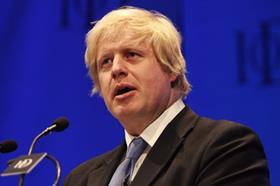
And so the Conservative leadership contest begins, with the successful candidate due to be announced on 22 July after the Tory membership cast the deciding vote on the final two. Yet again the Prime Minister, at a crucial time in British politics, is being chosen by just 124,000 – hardly representative of average society – individuals.
The UK’s fate on Brexit sits in the hands of the new leader’s stance on this key issue. Depending on who we get, then no-deal is still a very real prospect. They may be prepared to leave the EU on the agreed date, whatever the cost or consequence. And potentially in defiance of Parliament.
Other candidates - now eliminated from the race - including the farming sector’s own (not for much longer) Michael Gove, were against no-deal, but had faith that a new plan could still be negotiated. Not according to another eliminated contender, Rory Stewart, who criticised the cavalier attitude of some towards no-deal, claiming there is no hope of renegotiating a new Brexit deal by October 31. He thinks there’s life in the old deal yet and said he would have engaged the public to unlock the deadlock and get it through Parliament.
That certainly chimes with the EU’s position, which is: we’re done negotiating. They never wanted it to go this far, with the UK taking part in EU elections, and ending up with Farage’s army of hard-line Brexiteers winning MEP seats they won’t use to engage in EU parliamentary business. A farmer told me he saw a smug-looking Nigel Farage in the lobby of a Brussels hotel recently and had to resist the urge to thump him. Come to think of it, where was he during the milkshake incident?
Meanwhile, President Trump has been and gone, but there’s not as much mopping up to do as his advisers might have anticipated. The suggestion that the NHS would be ‘on the table’ in any future trade talks was swiftly corrected, but just as contentious is agriculture’s place in any UK-US trade deal.
As Air Force One touched tarmac, farming lobbies were practically waiting at arrivals to declare any compromising of food standards a betrayal to British farmers and consumers. The Department for International Trade was quick to tweet assurances: “Any future deal with the US must work for UK consumers, farmers and companies.”
Honestly, I think this is going to be hard to achieve.
Firstly, the UK is not the dominant party in these negotiations. Secondly, consider the mood of farmers in the States right now. The crippling trade war between America and China has closed off half the soybean export market; Mexico has slapped weighty tariffs on US cheese; and farmers have endured the wettest spring in decades. Sentiment is low among traditional Trump supporters.
The President needs to address the damage to the farming economy. Securing access to the UK market for agricultural products might well be a great souvenir of his trip.



